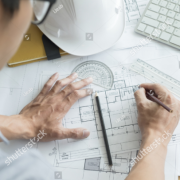Finding the right architect for your home can be exciting, albeit a bit overwhelming. There are so many Singapore architecture firms and design studios, each promising stunning design and smooth project delivery.
But how do you actually choose the one that’s right for you? Whether you’re building a new landed home or giving your interiors a complete refresh, the process involves permits and planning. It’s more than just picking a design you like.
You’ll be working closely with your architect throughout the design process, the construction process, and even after completion. The right partnership makes the journey rewarding. The wrong one can lead to renovation delays, unexpected costs, and frustration. Here’s what homeowners should assess before hiring an architectural firm in Singapore. We’ve also included practical advice on what to look for at every stage.
Key Takeaways:
- Set your budget and scope early. Know how much you can spend and what services you need before reaching out to firms.
- Match the firm’s style to your vision. Look at their past projects and see if their design philosophy aligns with your goals.
- Check credentials. Work only with architects registered with the Board of Architects (BOA) for proper accreditation and insurance.
- Prioritise good communication. A firm that listens and keeps you updated helps avoid confusion and costly mistakes.
- Review pricing and project management. Transparent quotes and efficient coordination keep your project smooth and on budget.
Before Anything Else: Know the Requirements, Budget, and Scope
Before contacting any architectural practice in Singapore, it’s essential to understand both the legal requirements and your own project parameters.
Understand the Legal Requirements
Under the Architects Act 1991, different rules apply to individual architects and architecture firms:
- Practising architects must hold at least a Bachelor’s Degree in Architecture Section 15 of the Architects Act 1991).
- Architecture firms must:
- Maintain liability insurance to safeguard clients and projects from potential damage (Section 24).
- Have a prescribed number of registered architects on their board of directors (Section 20(1)(c)).
These legal conditions ensure that only qualified professionals and properly structured firms operate in Singapore’s architectural landscape.
Determine Your Budget and Project Scope
Once you are familiar with the regulations, the next step is to define your budget and scope of work. This helps narrow down firms that match your goals and financial capacity. When setting your project parameters, consider the following:
- Budget: Decide how much you are comfortable spending before meeting with any architecture or design firm.
- Scope: Clarify what you need help with. Are you only looking for:
- Someone to handle permit processing and project plans; or
- A firm that also offers interior design, material selection, and end-to-end project coordination?
- Alignment: A clear budget and scope allow you to identify firms that can accommodate your needs without unnecessary revisions or delays.
Having a solid grasp of your requirements, budget, and scope will help you select an architecture firm that aligns with your goals and resources. Once these basics are in place, you can start evaluating potential firms using the factors outlined in the next section.
What to Assess When Looking for Singapore Architecture Firms
Once you know your scope and budget, here’s how to evaluate potential architects or design firms.
- Architecture Firm’s Specialised Design Style

Source: https://mingarchitects.com/wp-content/uploads/2018/07/Lowres-Branksome-15A-1.jpg
Every architectural firm has a signature aesthetic and design philosophy.
Some focus on residential architecture, while others concentrate on office buildings or public developments, such as the Singapore Sports Hub or the Golden Mile Complex.
Even within residential projects, styles can vary, from minimalist tropical homes that maximise natural light to contemporary designs that highlight functional sleekness.
You’d want to browse the firm’s portfolio.
- Do the homes they design align with your aesthetic preferences?
- Do they strike a balance between creativity and practicality.
- Does each space feel liveable, not just beautiful?
It’s crucial to note that beauty is subjective. You’ll be living in your soon-to-be home, not the architect. So the right architect should elevate your vision rather than impose their own.
2. Evaluate Experience and Previous Work

Source: https://mingarchitects.com/journal/
A firm’s track record says a lot about its ability to handle your project.
You’d want to assess their experience with your project’s property type: landed homes, terrace houses, bungalows, etc.
A firm’s track record also suggests its industry experience. Which, in an unexpected and volatile industry such as construction (e.g., material costs can change without prior notice, unexpected renovations may arise from poor site inspection, etc.) you’d want a firm that has seen it all.
You’d want a firm whose experience translates well into navigating the complexities of project management.
Visit one of their completed projects if possible. Seeing how their design translates into real life can reveal a lot about their quality, materials, and finishing touches. This can help set expectations for how your final output can end up looking.
3. Firm’s Licensing and Accreditation
Legitimacy matters.
In Singapore, an architecture practice must be registered with the Board of Architects (BOA). This ensures professional standards and accountability throughout your project. Proper accreditation ensures these firms are closely monitored by the country’s governing architecture body.
What to assess:
- Ask to see their BOA registration. This ensures that they carry liability insurance in case of a mishap (As outlined in Section 24 of the Architects Act) and that they have in-house registered architects qualified to render architectural services (As outlined by Section 21(1) of the Architects Act).
- Check if the firm is registered with the Accounting and Corporate Regulatory Authority (ACRA) to ensure they are a valid business with a permit to operate in Singapore.
Accreditation with professional bodies often signals commitment to excellence, ethical practice, and quality assurance.
Furthermore, registered firms carry Professional Indemnity (PI) Insurance, which financially protects clients from any property damage or harm caused by the project. A non-registered firm won’t likely carry PI, so you won’t be able to file a claim against them.
Working with licensed professionals keeps you safe from compliance issues and gives you peace of mind that your project is in responsible hands.
4. Assess Communication and Collaboration
Designing or renovating a home isn’t just a contractual project. It’s a creative coordination between dreamer and executor. You’ll want an architectural firm that listens carefully, communicates clearly, and respects your ideas.
- Do they take time to understand your lifestyle and how you use your space?
- Are they transparent about the process, timeline, and project scope, or do they intentionally omit anything just to make their quote seem cheaper than the others?
- Do they coordinate well with engineers, builders, and other consultants to maintain a unified effort?
Good communication ensures your home’s design concept stays intact through every stage of the construction process. From design drawings to the final completion.
In an industry such as construction, “simple misunderstandings” can result in costly repair and renovation, not to mention a dream unfulfilled.
Also, setbacks, unexpected costs, and renovations are inevitable. You’d want architecture firms that keep you informed of these.
5. Project Quotation and Cost Breakdown

Transparent pricing prevents misunderstandings and protects your budget.
After all, in a high-cost industry such as architecture, it’s all the more imperative that you know where your money’s going.
What to assess:
- Does the quotation include all major cost components? (e.g., planning, materials, labour, site works, construction costs, contingency, professional fees)
- Are there clear payment terms?
- Are there payment milestones linked to each stage?
A well-structured contract should outline not only the total cost but also how the firm handles unexpected costs, material substitutions, and schedule extensions.
This level of clarity helps you plan your budget responsibly and avoid going over budget (as much as possible, anyway).
6. Project Management

Source: https://www.shutterstock.com/image-photo/construction-project-planning-management-concept-140061574
Architectural prowess and project management are two distinct skills, yet both of them are integral to a successful firm nonetheless.
- Architectural skills – This refers to the firm’s architectural ability and knowledge.
- Project management – If you’ve availed turnkey services, your firm must be able to manage the project’s overall process, from design to the final stages, if you want a headache-free collaboration. This means overseeing non-architectural aspects as well.
While an architect may be able to render stellar architectural services, you’d want to assess if they’re an efficient project manager as well. In a multi-disciplinary industry such as construction, various expertises are required. These include construction engineering, design, electrical, plumbing, landscaping, logistics, liaising, and HVAC, just to name a few.
Good project management ensures the design intent is achieved, construction delays are minimised, and workmanship meets your expectations.
7. Technical Expertise and Innovation

Source: https://www.shutterstock.com/image-photo/back-view-male-digital-designer-creating-2223730005
In the ever-evolving landscape of engineering and architecture, it’s not just building code that needs to stay up to date. Your choice of architecture firm should as well.
Otherwise, you risk putting up a structure with 1920s’ compliance and structural integrity.
You’d want to assess if their permits and accreditation are up to date. This means they’re compliant with the latest building regulations and practices.
Are they familiar with latest trends and technologies, like smart home systems, energy-efficient windows, or sustainable design materials? You may assess their innovative knowledge during a consultation with their architects and engineers.
Also, do they use digital tools such as 3D renderings or BIM models to help you visualise your future home in more detail? Utilising this digital technology suggests that the firm is eager to adapt to advancements in architectural technology.
Book a Consultation with a Top Singapore Architecture Firm Now
When assessing Singapore architecture firms, remember this: it’s about finding a team that shares your vision, respects your budget, and delivers quality design built for the way you live.
Here at Ming Architects, we’re in the business of translating your vision into enduring architecture. Our place as one of the top Singapore architecture firms for contemporary landed homes doesn’t come without merit. It’s our years in the industry and focused specialisation that make us best equipped to handle your dream home. Book a consultation with us now!
Remember, great architecture doesn’t just make a house look good. It shapes how you experience daily life. It’s the morning light filtering through your living room, the breeze that flows through open corridors, the comfort of a well-planned layout that just works. The result is a home that reflects not only good design but also the essence of who you are.
Frequently Asked Questions
What’s The First Thing I Should Do Before Hiring an Architect?
Start by defining your budget and project scope. This helps you narrow down firms that fit your needs and avoid wasting time on unrealistic options.
How Can I Tell if an Architecture Firm is Legitimate?
Always check that they’re registered with the BOA and ACRA. You can also request their Professional Indemnity Insurance details, as it’s required for all licensed architecture firms.
What Should I Look For in a Quotation?
A good quote includes cost breakdowns for design, materials, and labour, with clear milestones and payment schedules.
Is Experience Really That Important?
Yes. A firm with a strong track record can anticipate problems before they happen and handle unexpected changes more efficiently.













Comments